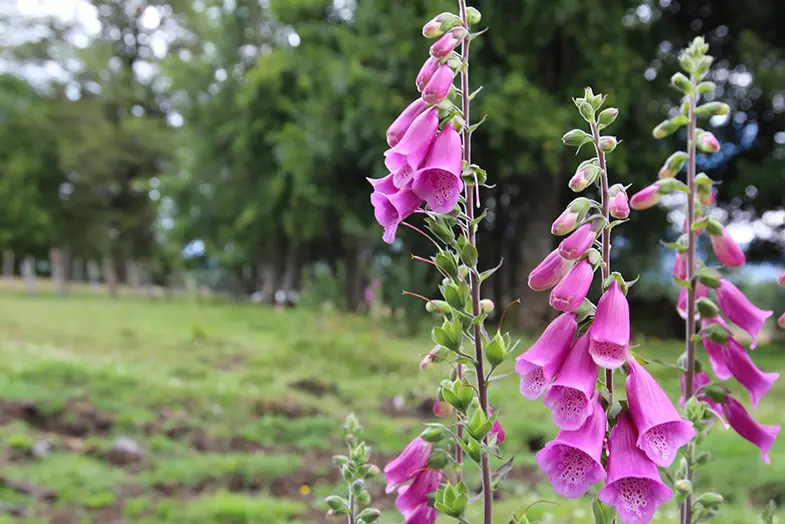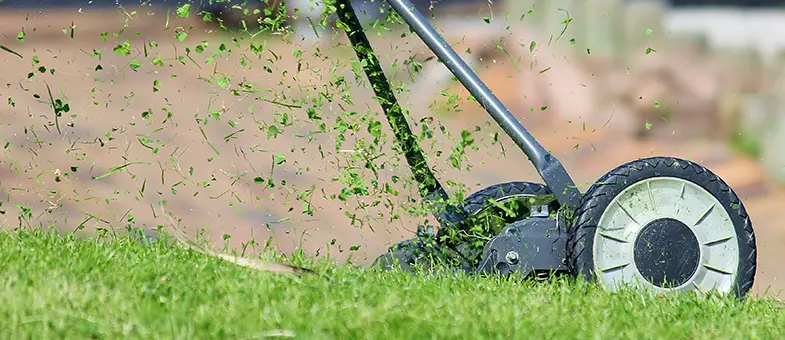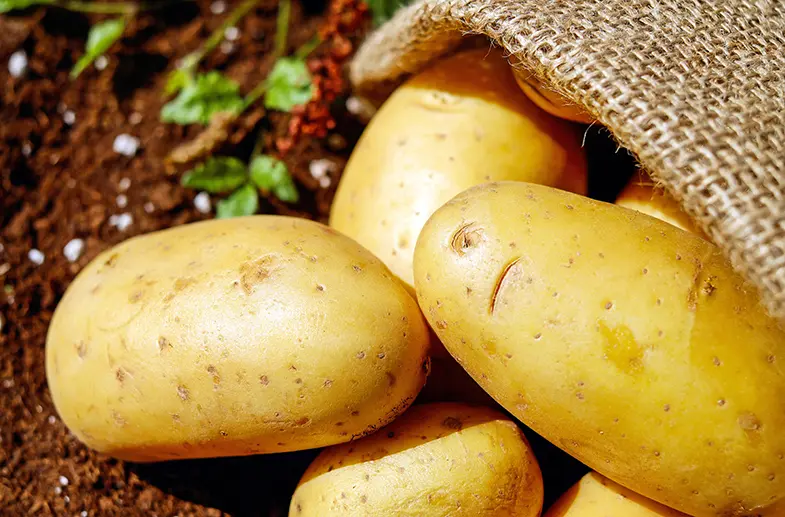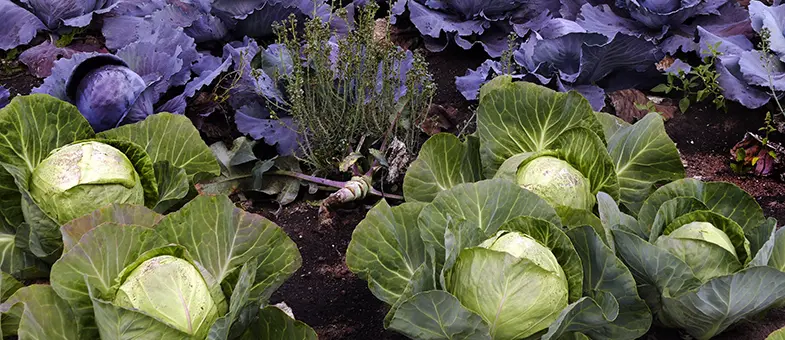Let’s be honest we all like to spoil our horses from time to time but it can often be difficult to know whether or not you’re feeding them something that could be harmful or even poisonous. After all, we all know that ragwort can be fatal to horses but did you know that avocado can be highly toxic to them?
Over the years I’ve been asked by many new horse owners what foods should they avoid feeding their horses which is why I thought I’d write this article.
What foods are poisonous to horses? Tomatoes, potatoes, rhubarb, onions, and avocado are all highly toxic to horses and should never be fed to them. Other human foods that shouldn’t be fed to horses either are bread, chocolate, dairy products, and meat, not because they’re toxic but because they could cause digestive issues.
While not necessarily poisonous to horses you should also avoid feeding them any fruit that still has the seed on stone in place. Not only do they contain small quantities of toxins such as arsenic and cyanide but they can also cause your horse to choke.
What plants are poisonous to horses? Ragwort, privet, foxglove, milkweed, and all forms of nightshade (including deadly nightshade, tomatoes, tobacco, and eggplant) can be extremely poisonous to horses with even a small amount proving fatal. Bracken and horsetail can also be highly toxic to horses.
There are some plants such as fresh buttercups that horses should also avoid eating, they won’t do your horse any serious harm but they can irritate their mouths and cause diarrhea. Dried or frozen buttercups, on the other hand, no longer contain any toxins but most owners choose not to feed them at all. While horses are perfectly okay eating fresh grass you shouldn’t feed them cuttings because, as soon as it’s cut, the grass will start to ferment and can cause blockages in the horse’s digestive tract.
10 plants that are harmful to horses
Many people think that being grazing animals, horses can eat most plants without suffering any ill effect from them but this isn’t the case. As a rule, horses are sensible and know what they can and can’t eat but sometimes their curiosity can get the better of them so it’s crucial to make sure you have none of the following plants in or around your horse’s pasture.
1) Ragwort
Ragwort is one of the most important plants to NEVER feed your horse. It contains pyrrolizidine alkaloids which are extremely toxic to horses. The toxins build up over time and cause irreparable liver damage which will quickly result in liver failure and ultimately death. Ragwort is so toxic that it can even be harmful to humans (although there’s no risk of serious liver damage) if it gets onto your skin, it’s for this reason that you should always wear protective gloves when removing it from any grazing pastures.
2) Privet
Box privet (sometimes known as box hedge) is the most dangerous type of privet, but all privet plants are highly poisonous to horses. Even a small amount can prove fatal.
3) Foxglove
A member of the digitalis family foxgloves are so poisonous that eating just 100g can kill a perfectly healthy horse in just a couple of hours.
4) Deadly nightshade
While the name ‘deadly’ is an obvious clue that it’s toxic it’s worth noting that other plants in the same family should also be avoided. Plants such as mandrake, tomato, potato, tobacco, and eggplant all belong to the nightshade family. Mild cases can result in colic-like symptoms and increased heart rate but sadly it can also result in death.
5) Bracken
Even if it’s dried and fed as hay bracken (or bracken fern as it’s sometimes called) can still be extremely toxic to horses and will, if not treated quickly, be fatal. Horses won’t naturally choose to eat bracken but will if it’s been picked a fed to them they will.
6) Horsetail
This plant, which produces spores rather than seeds, is extremely toxic to horses. Like a lot of plants that are harmful to horses its toxins, which destroy the vitamin B in the horse’s blood, become more potent when they’re dried. The effects of feeding horsetail are a weakness (especially in the muscles) and an increased arrhythmic pulse that can, in a lot of cases, sadly prove to be fatal.
7) Milkweed
Milkweed is extremely toxic to horses and can cause spasms, loss of control of muscles, and even affect the horse’s heart rate. In extreme cases, it can paralyze the muscles around the lungs. As a rule, horses won’t eat milkweed but if they don’t have enough good quality food or grazing they could end up eating it. Unlike some other toxic plants though milkweed is very rarely fatal to horses.
8) Persimmons
While the fruit and seeds of the persimmon aren’t toxic to horses, if injected they can cause a sticky substance (known as phytobezoar) to form in the horse’s gastrointestinal system which can get stuck, blocking the digestive tract and causing colic. Most horses will avoid the fruits when they’re on the trees but when they ripen and fall to the ground horses will eat them.
9) Yew
Regardless of whether they’re fresh or dried or whatever time of year it is yew is extremely poisonous to horses. Even in small amounts, it can kill a perfectly fit and healthy adult horse within a matter of hours. This is why it’s best to remove all yew trees from your pasture and make sure there are none overhanging either.
10) Lawn or garden cuttings
Horses can eat grass until the metaphorical cows come home but they should only eat fresh grass. As soon as the grass is cut it starts to ferment and when it reaches the horse’s stomach it continues to ferment and expand. This can result in colic and, in extreme cases, can rupture the stomach. While grass naturally eaten by horses will still ferment, this process won’t start until it’s moved much further along the digestive tract.
Other plants that horses should avoid
There are a large number of other plants, such as buttercups, laurel, and red oak (including acorns), that can be harmful to horses and cause symptoms such as colic and diarrhea, but the plants listed above are the most important ones to avoid.
12 human foods that are harmful to horses
While things such as carrots, apples, and watermelon are perfectly okay for you to feed to your horse you may be surprised to know some of the things you should never feed to horses.
1) Avocado
It’s not just the fruit of avocados that’s toxic to horses but every single part of the tree is too, from the fruit to the leaves and even the bark. They can cause a very irregular heartbeat as well as breathing issues, colic, and in some cases death.
2) Tomatoes
Being from the same family as the deadly nightshade tomatoes contain an alkaloid known as atropine that not only causes colic and digestive problems but also increases your horse’s heart rate. Generally, horses don’t like the taste of tomatoes so they won’t choose to eat them but if they’re in your sandwich, for example, it could disguise the taste.
3) Potatoes
Like tomatoes, potatoes are part of the deadly nightshade family and should never be fed to horses. If nothing else they can pose a choking hazard to your horse but are also toxic to horses, especially if they’re green or are rotten.
4) Rhubarb
Containing high levels of calcium oxalates rhubarb is not only toxic to horses but a large number of other animals too. They can cause tremors and, if the horse ingests enough, kidney failure.
5) Garlic, onions, chives, and leeks
While garlic supplements are perfectly okay to feed to horses raw garlic, onions, chives, and leeks should only be given in very small amounts. They all contain N-propyl disulfide which can cause anemia in horses. As a ‘by the way’ footnote, it’s the N-propyl disulfide that makes our eyes water when cutting onions.
6) Unpitted fruit
While a large number of fruits are perfectly safe for your horse to eat you should only ever feed them fruit that has had the stone or seeds removed. Along with containing small amounts of toxins (such as arsenic in apple pips and cyanide in peaches) they can increase your horse’s chance of choking.
7) Dairy produce
Like a lot of animals, horses are in fact lactose intolerant, and eating dairy products such as milk and cheese can cause severe diarrhea. In some cases continued consumption of lactose can cause colic and other digestive issues.
8) Bread
While you might think it’s kind to share your sandwich with your horse this can block their digestive system and cause colic. Horses aren’t able to break down processed foods so it ends up causing an obstruction in their digestive tract.
9) Chocolate
Containing a toxic chemical called theobromine, chocolate can be fatal to horses if they digest large quantities of it. In smaller doses, it has a similar effect to caffeine which could result in competition horses failing a drugs test and ultimate disqualification. You may be interested to know that theobromine can also be toxic to humans! It’s the speed at which our body metabolizes theobromine that prevents us from suffering any effects from it when we eat a ‘normal’ amount.
10) Brassica
Very small amounts (less than 5oz per day) of cauliflower, cabbage, or broccoli can be okay for horses to eat but anything more than that can lead to stomach issues such as colic and trapped gas. Most owners choose to not feed their horses any brassica at all.
11) Meat
While horses have been known to eat the odd ham sandwich or hotdog without any problems its important to remember that they’re herbivores and that their digestive system hasn’t evolved to eat meat (nor have their teeth). Small amounts of meat may be okay for them to eat but there’s no research carried out on the long-term effects of them eating meat so it’s best to avoid completely.
12) Bran
In the past, it was thought that bran was good for horses but recent studies have shown that it can cause a mineral imbalance and have a negative effect on their digestion which can cause diarrhea.
3 other foods that are harmful to horses
Not feeding things like moldy or dusty hay to your horse is common sense but there are a number of other things you shouldn’t feed your horse.
1) Bran
In the past, it was thought that bran was good for horses but recent studies have shown that it can cause a mineral imbalance and have a negative effect on their digestion which will cause diarrhea.
2) Cattle feed
You might think that horses are able to eat cattle feed but this isn’t the case. Horses and cattle are very different animals with totally different digestive systems and what is okay for one could prove fatal to the other. Likewise, you should never feed something meant for horses to cattle either.
3) Caffeine
Caffeine contains a stimulant (known as trimethyl xanthine) which, if consumed in large quantities, can cause an irregular heartbeat in horses. It’s also worth mentioning that in many competitive events caffeine is a banned substance.
Further reading
- Healthy treats for horses
- 20 fruits that horses love
- Can horses eat sweet potatoes?
- How to feed a horse with no pasture
- How to feed a hard keeper on a budget
- Why does my horse eat mud?
- Are bananas okay for horses?
- Can horses eat wet grass?
- 12 signs your horse is healthy
- Can horses eat pumpkins?
I hope you found this article helpful. If you did I’d be grateful if you could share it please as it would really help me.
Recommended products
Over the years I have tried hundreds of different horsey products, from various blankets and halters to different treats. Some I’ve loved, others I’ve hated but I thought I’d share with you my top all-time favorite products, the ones I never leave the yard without. I’ve included links to the products (which are in no particular order) that I really think are great.
- Horse Knots by Reference Ready – If you’re like me and enjoy pocket reference guides then you’ll love this knot tying guide. These handy cards can easily fit in your pocket or attach to the saddle for quick reference. They’re waterproof, durable and are color coded to make them easy to follow.
- Mane ’n Tail Detangler – Even if you never show your horse you’ll need to detangle his tail from time to time (and possibly his mane too) which is always a challenging chore! I’ve found that if I run a little bit of detangler through my horse’s tails every few days it stops them from getting matted up and makes combing them easy, even if they’re coated in mud. I don’t know if I should admit to this or not but it also works wonders on my hair.
- TAKEKIT Pro clippers – Over the years I’ve tried a lot of different clippers and while some were obviously better than others I found these to be by far the best. They are heavier than a lot of other clippers but for me, that’s a good thing, it makes them feel more sturdy and hardwearing. On top of that they have a range of speeds so are just as good for clipping your horse’s back as they are his face. I also like the fact that they come in a handy carry case but that’s not for everybody. The company that makes them is super good and incredibly helpful too, a real bonus these days. The only thing I wasn’t keen on was the fact that it doesn’t come with any oil, but that’s not a major problem as it’s not difficult to buy lubricant.
- Shire’s ball feeder – There are so many boredom buster toys out there but I like to use these every day, regardless of whether or not my horses are bored. I find that it helps to encourage my horses to problem solve by rewarding them with treats (or pieces of fruit) but it also mimics their natural grazing behavior which helps to keep them calm and de-stressed.
- Horse safe mirror – This is a strange one that many people are surprised about but I like to put horse safe mirrors in the trailers as well as in the quarantine stalls. It helps to prevent the feeling of isolation by giving the impression of other horses being around. Being herd animals horses can get extremely stressed when they feel that they’re on their own but with these stick-on mirrors, they believe that at least one other horse is with them.
- Rectal thermometer – I know this isn’t glamourous at all but it’s vital for your horse’s well-being to be able to check their temperature and a rectal thermometer is the easiest way of doing this which is why I’ve added it to the list.
Shopping lists
I’ve also put together a few shopping lists of essential items that I’ve found helpful over the years. I’ve broken the lists down into different categories rather than put everything in one massive list 😉




